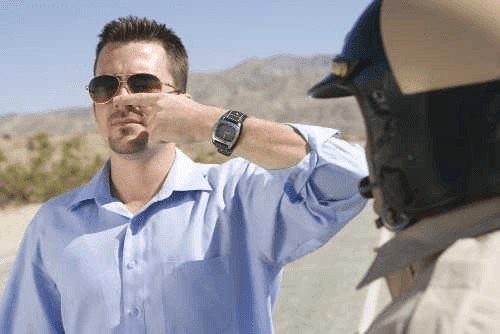Field sobriety tests (FSTs) play a crucial role in Charles Town, WV, felony DUI cases, serving as a means for law enforcement officers to gauge a driver’s impairment level. However, understanding the requirements and implications of these tests is vital for both drivers and legal professionals alike. On this page, we’ll delve into the intricacies of FSTs in Charles Town, WV, particularly in the context of felony DUI cases.
The Importance of Field Sobriety Tests
Field sobriety tests serve as one of the primary tools for law enforcement officers to assess a driver’s level of impairment due to alcohol or drugs. These tests are typically administered roadside during a traffic stop if an officer suspects a driver of driving under the influence (DUI). While they are not foolproof indicators of intoxication, they provide valuable evidence that can be used in court proceedings.
Understanding Field Sobriety Test Requirements
In Charles Town, WV, the requirements for administering and evaluating field sobriety tests are governed by strict protocols established by the National Highway Traffic Safety Administration (NHTSA). These protocols outline standardized procedures for conducting three main types of FSTs: the Horizontal Gaze Nystagmus (HGN) test, the Walk-and-Turn test, and the One-Leg Stand test.
Horizontal Gaze Nystagmus (HGN) Test
The HGN test involves observing the driver’s eyes as they follow a moving object, typically a pen or flashlight, held by the officer. The officer looks for involuntary jerking of the eyes, known as nystagmus, which becomes more pronounced under the influence of alcohol or drugs. To administer this test accurately, the officer must be properly trained and certified in its execution.
Walk-and-Turn Test
During the Walk-and-Turn test, the driver is instructed to take nine heel-to-toe steps along a straight line, turn, and take nine heel-to-toe steps back. The officer looks for indicators of impairment, such as inability to maintain balance, stepping off the line, or starting before the instructions are given. Proper administration of this test requires a level surface and clear instructions from the officer.
One-Leg Stand Test
In the One-Leg Stand test, the driver is asked to stand on one leg while counting aloud for a specified duration, usually around 30 seconds. The officer observes for swaying, hopping, or putting the foot down, which are considered signs of impairment. Like the other FSTs, proper execution of this test relies on adherence to standardized procedures and adequate training.
Implications of Failing Field Sobriety Tests in Charles Town, WV Felony DUI Cases
For individuals facing felony DUI charges in Charles Town, WV, failing field sobriety tests can have serious legal consequences. A failed FST can provide probable cause for an arrest and may lead to further chemical testing, such as breathalyzer or blood tests, to determine blood alcohol concentration (BAC) levels. If convicted, individuals may face significant fines, license suspension or revocation, and even imprisonment, especially for repeat offenses or cases involving injury or death.
Challenging Field Sobriety Test Results
While field sobriety tests are commonly used as evidence in DUI cases, they are not infallible. Various factors, such as weather conditions, physical limitations, and officer bias, can influence test results and their interpretation. As such, skilled legal representation can help challenge the validity of FSTs in court, potentially leading to the exclusion of this evidence or dismissal of charges.
Understanding Your Rights and Options
When facing felony DUI charges in Charles Town, WV, it’s crucial to understand your rights and options regarding field sobriety tests. While you have the right to refuse to perform these tests, it’s essential to weigh the potential consequences carefully. Refusing to comply with an officer’s request for field sobriety testing can result in administrative penalties, such as license suspension, and may be used against you in court as evidence of consciousness of guilt.
However, submitting to field sobriety tests is not a guarantee of favorable outcomes either. Even individuals who believe they are sober may perform poorly on these tests due to various factors, including nerves, fatigue, or medical conditions. In such cases, seeking legal guidance from a skilled attorney can help you understand your rights, evaluate the evidence against you, and determine the best course of action for your defense.
Moreover, it’s essential to remember that field sobriety tests are just one piece of evidence in a DUI case. Prosecutors must prove beyond a reasonable doubt that you were operating a vehicle while under the influence of alcohol or drugs to secure a conviction. Challenging the validity of field sobriety test results, questioning the officer’s observations, and presenting alternative explanations for your performance can all be effective defense strategies in court.
Additionally, individuals facing felony DUI charges in Charles Town, WV, may have options for alternative resolutions, such as plea bargains or diversion programs, depending on the circumstances of their case and their prior criminal history. Consulting with a knowledgeable attorney can help you explore these options and make informed decisions about how to proceed with your case.
In Charles Town, WV, field sobriety tests serve as crucial tools in felony DUI cases, providing law enforcement officers with valuable evidence of impairment. However, understanding the requirements and implications of these tests is essential for individuals facing DUI charges and their legal representatives. By recognizing the standardized procedures for administering and evaluating FSTs and by seeking skilled legal counsel, individuals can navigate the complexities of the legal system and strive for a favorable outcome in their cases.
If you or a loved one is facing felony DUI charges in Charles Town, WV, it’s imperative to seek experienced legal representation. Contact The Wagner Law Firm today to schedule a consultation with our knowledgeable attorneys who can provide you with the guidance and advocacy you need to protect your rights and pursue the best possible outcome in your case.
